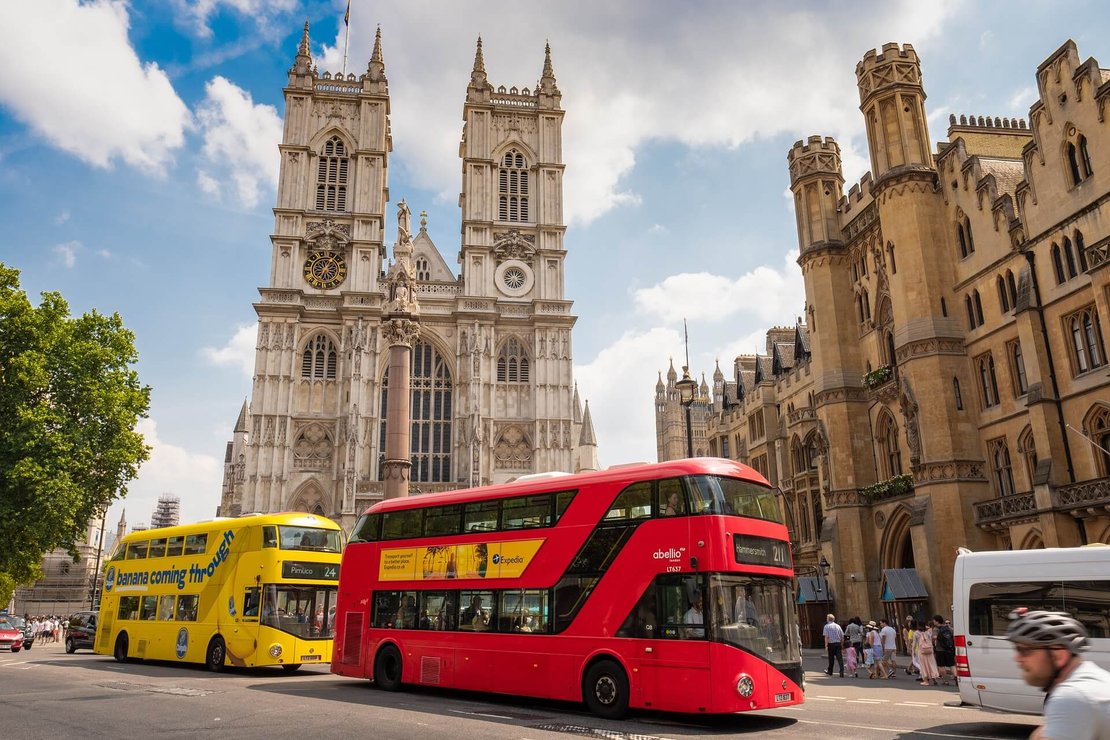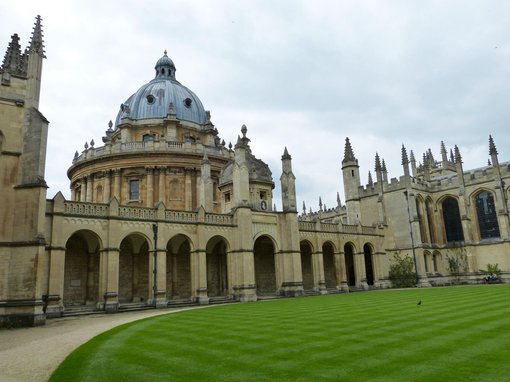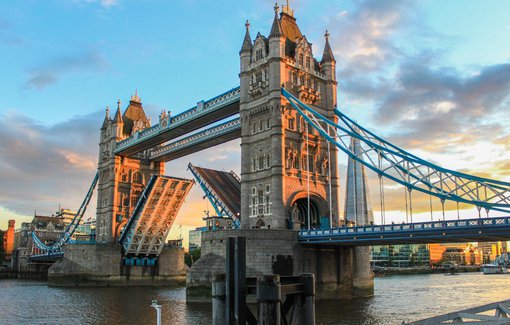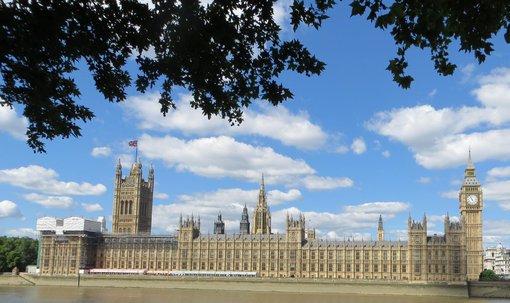English Greetings: For Formal & Informal Situations

There are different ways to say "Hello" in English, depending on the situation and the person you speak to. For example, you would greet friends and family differently from the supermarket cashier or the person conducting a job interview.
As a result of learning English greetings, you will be able to integrate more easily into British culture because you will become comfortable with introductions and expand your social circle.
Formal Greetings
Sometimes you need to use more formal language to keep a professional tone when meeting new people. Here are some examples of formal greetings:
Good Morning / Afternoon / Evening
Type: Spoken & Written
The following phrases are effective at starting a conversation at any time of day, whether you are speaking to a regular customer, a colleague, or a new neighbor.
The greetings change depending on the time of day:
- Good Morning. Generally used from 5:00 AM to 12:00 PM
- Good Afternoon. Generally used from 12:00 PM to 5:00 PM.
- Good Evening. Generally used after 6:00 PM or when the sun goes down.
You can also include the person's last name in your greeting as a sign of respect. Native English speakers usually use the person's first name after the salutation, even in business communication.
Staff in shops, restaurants, and hotels often say ‘Good morning, sir/madam’ when greeting someone in a formal situation who is not known by their name.
How Do You Do?
Type: Spoken
In some cases, ‘How do you do?’ is used more as a statement than a question when used as a formal greeting. You can easily hear, if this is the case, if there is no inflection at the end of the sentence. If this is the case, you must repeat the question to the asker in the same flat tone, ‘How do you do?’.
It’s Lovely to Meet You
Type: Spoken
This is one of the respectful greeting examples English people use when meeting someone for the first time. It is more common for British people to describe meeting each other as ‘lovely’ than ‘nice’ when greeting one another in a formal setting.
You will notice in the UK that the word ‘lovely’ means the same as ‘fine’ in American English. To British English speakers, it sounds more sincere and kinder.
Informal/Casual Greetings
A conversation with your neighbor or a coffee break chit-chat can benefit from these informal greetings. Situations that would be appropriate include a casual conversation with your colleagues or chatting with a friend.
Hello / Hi / Hey
Type: Written & Spoken
‘Hello’ and ‘Hi’ are the most commonly used greetings in informal situations. Generally, they are followed by the person's name. It is acceptable to start a conversation with a stranger with ‘hey’ too, but don't pronounce it too harshly, or it may come across as rude or confrontational.
Cheers!
Type: Written & Spoken
People often say Cheers when they are out drinking and clink their glasses together. People from the UK use ‘cheers’ to mean ‘thank you’. In fact, British people say ‘cheers’ all the time without noticing they’re doing it – a bit like the way they say ‘sorry’ all the time.
They often use, ‘OK, cheers!’ to mean ‘Goodbye!’ or ‘Thank you!’.
How’s Everything? / How’s Life?
Type: Written & Spoken
You can use this expression to greet an old friend or to begin a conversation with someone you haven't seen in a long time. They are often followed by questions like ‘What’s new’ or ‘How have you been?’ And they are great ways to start small talk about what has happened since the last time you met.
Are You Ok? / You Alright?
Type: Written & Spoken
In Britain, this casual way of saying ‘Hello’ and ‘How are you’ is common. You can reply ‘Yes, fine,’ or just ‘Alright’ before asking, ‘And you?’.
English Slang Greetings
Learning slang is fun because it's informal and a little bit silly, and you can use it to show you're friendly.
Here are some different ways to greet your younger family members or good friends:
Yo!
'Yo' is another American slang expression now widely used by the British to mean ‘hello’. It is an informal greeting commonly used by young adults.
Hiya!
In the North of England, this is a very common way to say ‘hello’. It is also often used in text messages.
What’s Up?
There is a lot of use for this slang greeting in person and over text messages. It is a more relaxed way of greeting a friend by asking what's new in their life, and how they're doing. It is not rude and can be used with colleagues you are close to, friends, and family members.
Written (Email) Greetings
It is common for many formal conversations to take place in writing, whether it is a job application, a legal request, or a complaint about an organization.
Here are the best ways to greet someone in writing when you have something important to say:
Dear Sir/Madam
A professional letter or email should begin with “Dear Sir or Madam”, if you do not know the name of the person to whom the letter or email is being sent. If you can find the person you want to speak to with some online research, it is much more professional to do so and send a personalized formal greeting. It is clear, respectful, and to the point.
To Whom It May Concern
Using this approach is another way to address an email to a stranger. It's a little old-fashioned but great if you're sending a formal email to a group or want to sound formal.
To the Hiring Manager
You can use ‘To the Hiring Manager’ as a greeting when sending a job application or emailing the HR department about a role you would like to apply for. If you are emailing the company's generic ‘info@’ inbox, it indicates that your message is about a job opportunity and instructs the person handling the inbox to forward the message to HR.
Interacting in the UK: Cultural Tips
Here are some greeting tips on how to act in different situations, such as when meeting strangers, introducing people to one another, and more:
Greeting Strangers
‘Hello’ is a polite way to greet someone you don't know, but a more formal greeting is ‘Good morning’, ‘good afternoon’, or ‘good evening’. The other person normally replies with the same greeting as you have used, and then politely continues the conversation.
Introducing People
When you introduce other people to your friends or colleagues you could say ‘Jannete, have you met my colleague Maddy?’ or ‘Jannete, I’d like you to meet my colleague Maddy.’
Greeting People at Work
At work, it's polite to refer to a person with higher status as ‘Mr’ or ‘Ms’ until the situation becomes more informal, for example, your boss or a client.
Greeting the Elderly
When addressing elderly people, the most respectful greetings are ‘Hello,’ or time-related greetings like ‘Good morning’ or ‘Good evening’. To make it even more respectful, add the listener's formal title afterward, such as ‘Hello, Mr or Mrs ______,’ or ‘Hello, sir or ma'am’.
Body Language: Social Etiquette Tips
It is a rich tradition in England to show politeness, restraint, and reserve. The English are courteous, unassuming, and unabrasive. They are proud of their long and illustrious histories.
Here are some things that characterize the English people:
Greetings
Despite their reserved nature, the British are actually very friendly and helpful to foreigners. When in the UK, shake hands with everyone present at social or business gatherings. Handshakes are light.
Until you are specifically invited to use first names by your British hosts or colleagues, use last names and appropriate titles.
Body Language
Hugging, kissing, and touching are usually reserved for family members and very close friends. Back slapping and touching are not common in the British culture. Keeping some personal space is an important part of British culture. Do not stand too close to somebody or put your arm around their shoulder. Staring is also considered rude.
Etiquette
Here’s a few things to know regarding British etiquette:
- When a woman enters a room, men should open the door for her or hold the door for the person behind them.
- Don't ask personal questions, such as where someone lives or what they do for a living. Don't discuss money.
- If you want to communicate with the English, you shouldn't be too casual. The English do not speak in superlatives, so saying, ‘I am quite pleased,’ means they are very happy.
- Avoid shouting or being loud in public places, and avoid excessive, demonstrative hand gestures.
- When a queue is in place, do not violate it. It is considered very rude to push ahead.
Now that you’re all set with some of the main English greetings, it’s time to explore the UK in all its glory!
Related Articles

Welcoming more than 500,000 international students each year, the United Kingdom is a leading destination for international students. There are many things that make English higher education great, starting from its quality that distinguishes among countries in the world to its top-notch universities that provide students with numerous career opportunities for the future.

The application process to each university or each country takes students quite a bit of time. Especially to international students who most probably have a number of additional documents to prepare and submit. The application process becomes even harder if your study abroad destination is the United Kingdom. Universities in the UK are some of the most competitive, and that is why students should start preparing their applications as early as possible.
